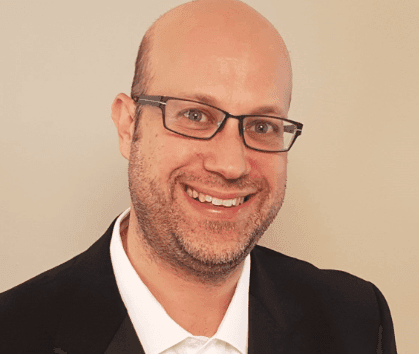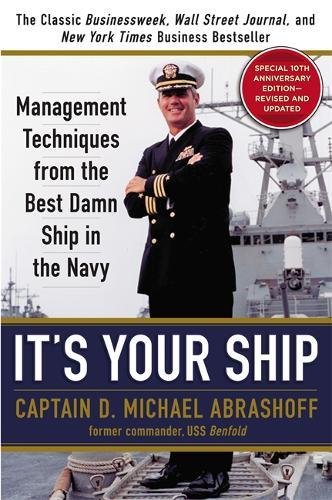Interview with Sol Rosenbaum, Director, Green & Energy Services at GRS Group
Published on Jan 6, 2019
6 min read


Current role: Director, Green & Energy Services
Location: Irvine, CA (headquarters)
What’s your background and how did you get into management?
After finishing my BS and MS in mechanical engineering, I went to work for a firm that works on large-scale energy efficiency projects. It was at this firm that I was given the opportunity to work on all aspects of these projects from the initial walk through & calculations/design, to the construction & project management, and the measurement & verification process. This really opened my eyes to all parts of these projects and I realized that my end goal was to go into the business/management side of things, but still have a hand in the technical processes.
Following this position, I moved on to a district energy company and was able to combine these two interests as the Business Development Manager. After several years there and then running my own engineering consulting business, I moved back to the corporate world in 2017 when I was offered the position of Director, Green & Energy Projects for GRS Group (a commercial real estate due diligence services company). GRS Group was one of my clients when I had my engineering consulting business and they had a need to fill a position that was newly created.
What are the biggest challenges you face?
Workflow and scheduling. Due to the nature of our business, some of the engineering work will be performed one week after engagement while other projects have work flowing in three weeks after engagement. This can make it difficult to plan our work schedule and assign projects efficiently.
There are several steps that go into the data collection, analysis, calculation, and documentation for the energy & water audits we produce. Ideally, an engineer would be able to flow through them all and then move to the next project. However, considering the varying sources of the data collection this is generally not possible. Therefore, I have created my own system within Excel to track all of my active projects and allow me to stay on top of them regardless of their position in the workflow. I color code based on the assigned engineer, if the report files are complete and under analysis by the engineer, and when the report is submitted for my review. I also have a column where I add in notes so that I do not lose track of the little details inherent to each. Every morning, the first thing I do is check this chart and mark some tasks down on my daily checklist accordingly.
What is your approach to hiring?
I want to hire engineers who are able to think outside the box and also have some related experience. I love it when my engineers come to me with an idea of something they would like to add to our services or tweak our calculations. Although I might have the ultimate say, I like to see it as a partnership between all of us to ensure that our customers get the best possible product while, of course, watching our bottom line.
My company focuses on due diligence transactional services for commercial real estate transactions. At this time, the green/energy part of the firm that I manage is small in comparison and I am able to grow it organically. To do this, I am always on the lookout for great talent and have had good luck finding qualified individuals at conferences. As this is not an interview process per se, I find that I can have much more open and free-flowing conversations where the prospect of employment is never even mentioned. Down the road, I am able to reach out to these people and see if they may be interested in doing some work for our firm as I already know they will be a good fit.
What’s your advice for managers who are just starting out?
It is important to understand the difference in skill sets between being an engineer and an engineering manager. Being a good technical engineer does not automatically imply that one will be a good engineering manager. In order to become a good engineering manager, you will have to learn new skills to be efficient with the business and oversight of the project in general. You will need to understand how to motivate your team and to understand all of the various components (not just technical) that need to come together for a successful project.
What’s your workday like and how do you manage your time, emails, etc.?
I’d like to say it is a fairly standard 9-hour workday, but this can be tough to maintain as I am the final word when it comes to many technical issues. Therefore, I will often be finished for the day, but then need to jump on an issue from the West Coast folks. Also, work will vary daily depending on the tasks required to be completed. My day is generally split between review of ongoing projects, ushering along active projects, general marketing & development for new projects, and supporting the other Directors in the firm on technical issues.
When it comes to emails and calls, I try to set aside chunks of time to go through them. Going back and forth between work mode and communication mode takes time and I find that I am much more efficient when I stay in each mode bit longer and limit the back & forth.
What’s a personal habit that contributes to your success?
Reading a minimum of 10 pages per day. It often comes out to more than that, but this simple exercise will allow someone to easily read 10-15 books per year.
Share an internet resource or tool that you can’t live without.
LinkedIn. I love actively networking and LinkedIn has allowed me to create a worldwide network. The information that they share about their experiences in engineering has helped me grow in my work. I have also had the opportunity to connect with many younger engineers to help mentor them in one form or another.
If you could recommend one book to managers, what would it be and why?
It’s Your Ship by Captain Michael Abrashoff. I found his approach to leadership and management to be very useful and applicable.
What is your approach to mentoring and coaching members of your team?
I think I can sum it up in two sentences. . . If you don’t know something, please ask. It’s ok to make mistake once or twice, but if you keep making them then I am going to question either your ability to perform or your ability to follow guidance.
I do not have a specific mentoring plan or schedule, but it is just something I do daily. It is more of a general philosophy for me and is borne out of my gratefulness for all the engineers with whom I have interacted that have helped me get to where I am today. Therefore, the engineers on my team know they can come to me with any issues they have on a project or just to discuss some ideas. Being there for open dialogue has helped us all improve and I include myself in that as well since the questioning of a younger engineer can challenge you to look at something a bit differently. Doing this as part of my professional duties has also spilled over to a website and newsletter geared towards mentoring younger engineers that I like to work on in my spare time. This has allowed me to reach far beyond the connections I have personally and I have helped engineers from across the globe as the face some of the same struggles I have had to overcome during my years in university and in industry.
Where can we go to learn more about you?
I maintain an active LinkedIn profile and encourage people to reach out to me through that channel. As I have written in several articles, I like to have an active and more engaged network, so please add a note and tell me a bit about yourself instead of just clicking the connect button. In my current role at GRS Group, I have written several articles about our green & energy programs and invite you to read more of my articles on the company blog. As noted above, I have a personal interest in mentoring younger engineers and have a website of my articles & advice, www.TheEngineeringMentor.com.
This series asks engineering managers to share their experiences with the intent of helping other engineering managers learn and improve. Have someone you want to see featured or questions you think we should ask? Contact me.






